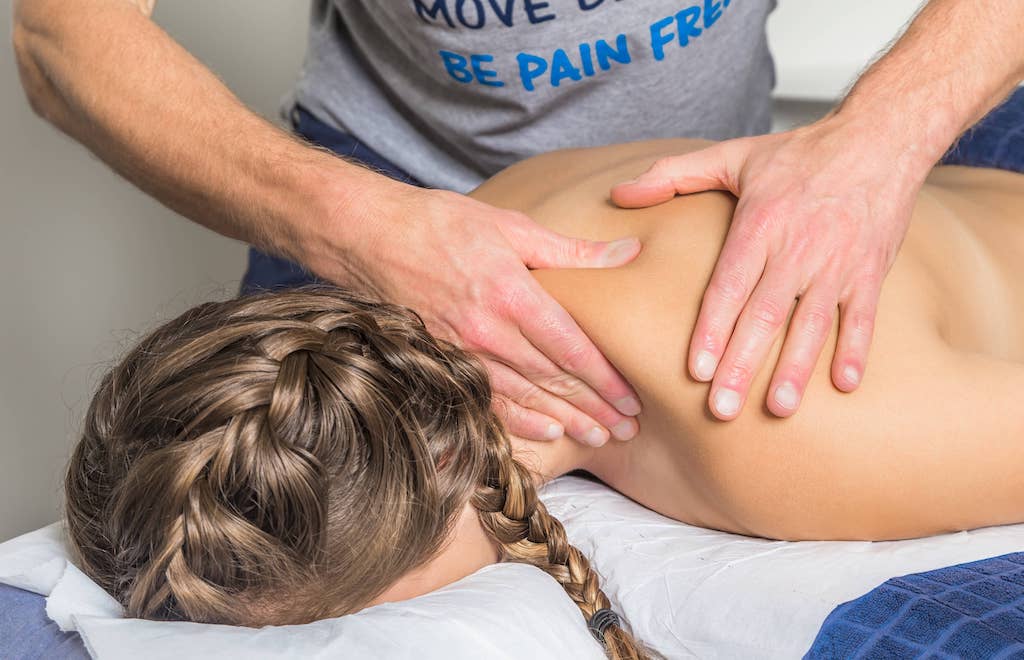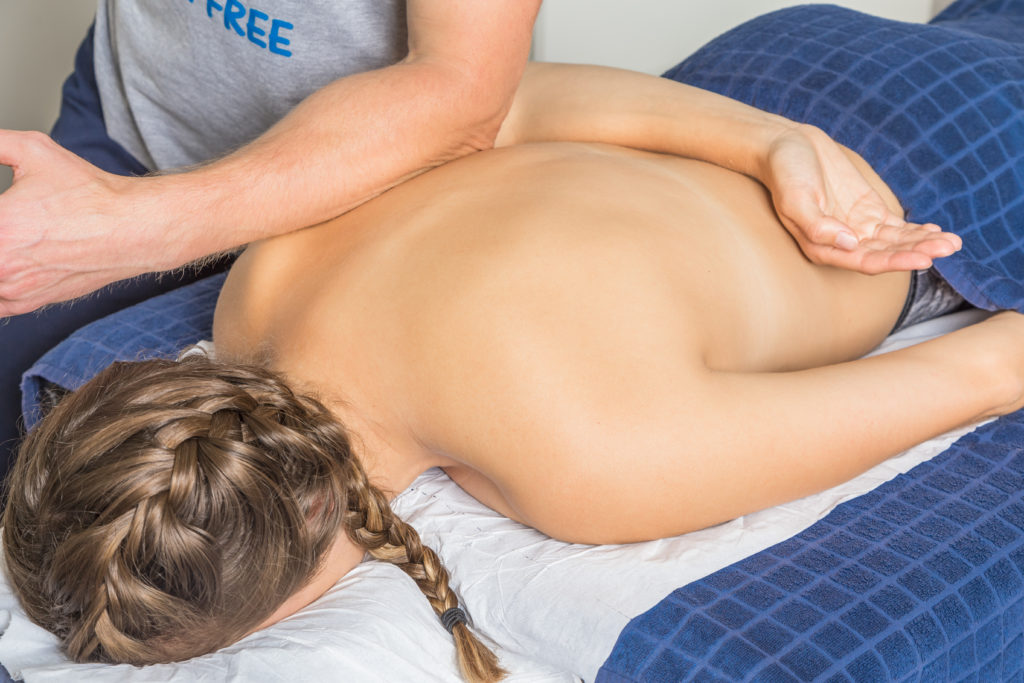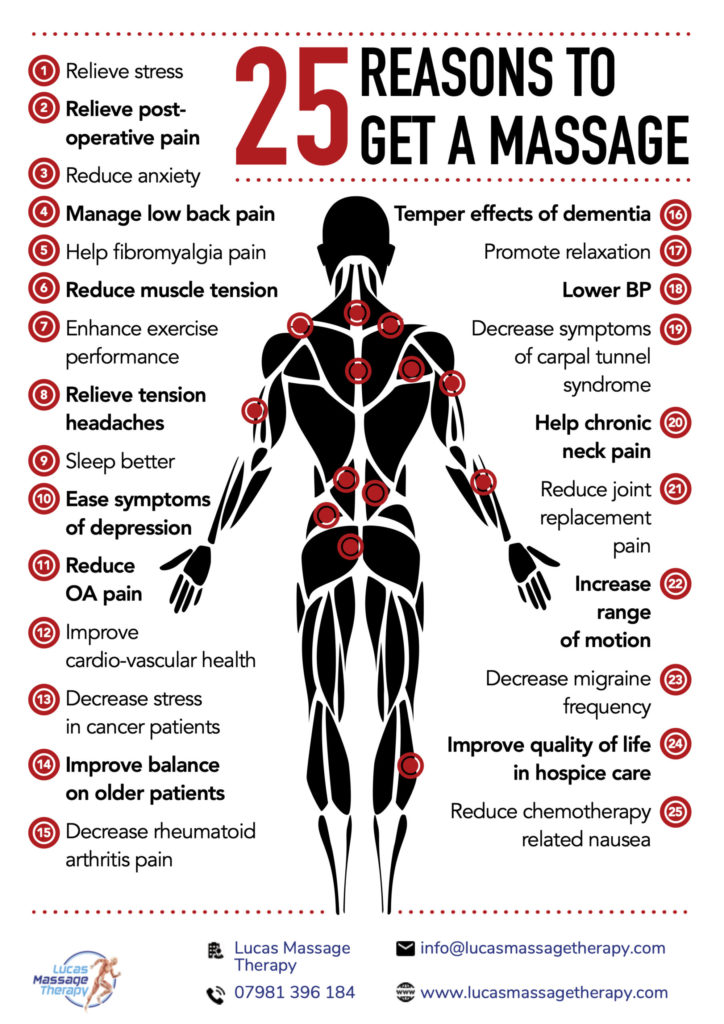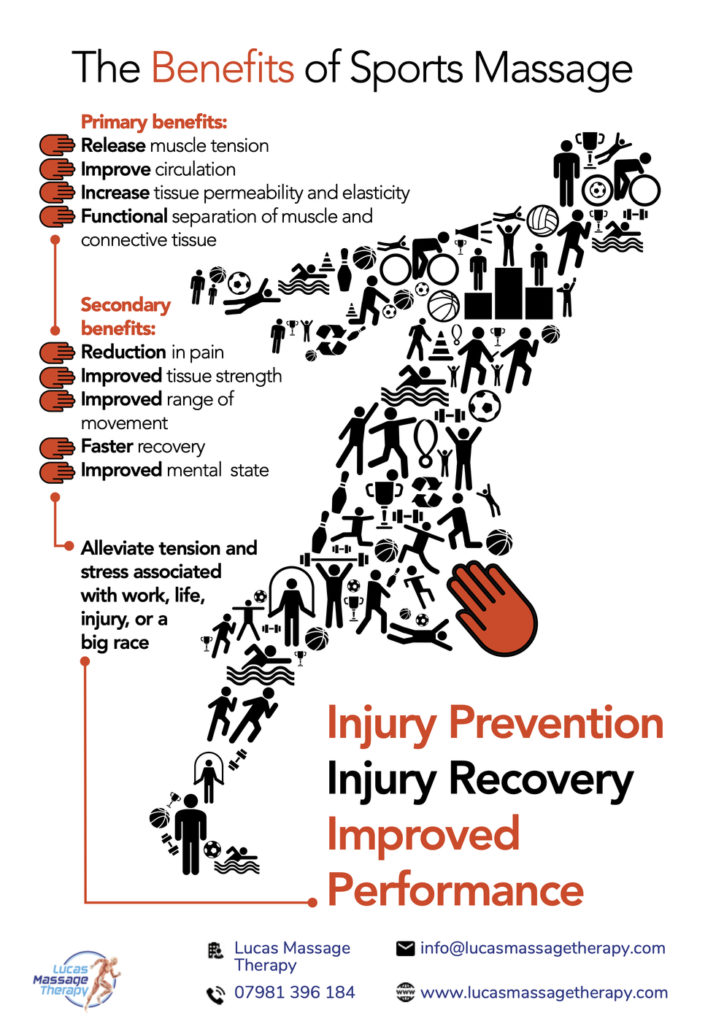The Best 14 Massage Benefits
Massage encompasses various techniques involving the application of pressure, rubbing, and manipulation to the skin, muscles, tendons, and ligaments using the hands. Multiple massage styles exist, with variations in intensity from gentle stroking or kneading to more forceful pressure. Irrespective of the specific method employed, regular massage can enhance one’s overall well-being. To facilitate a better understanding of its numerous advantages, we have categorized them into three key aspects of health and wellness: improved quality of life enhanced physical well-being, and strengthened immune system.
Table of Contents
1. Massage Benefits for Posture
Musculoskeletal problems, such as back pain, are the leading cause of work absenteeism in the UK, closely followed by stress. The main culprit behind these issues is poor posture. Incorrect alignment of the body, whether it’s while sitting at a desk, driving, or using a computer or phone, can result in sore necks and backs. Poor posture causes certain muscles to overwork while others become weaker and shorter. Massage therapy can alleviate pain and loosen tight muscles, enabling the body to adopt its natural and pain-free posture.
2. Massage Benefits for Breathing
Massage has a vital function in teaching the body to unwind and enhancing respiration, which can be impacted by high-stress levels. Massage therapy can be advantageous for respiratory conditions like allergies, sinus problems, asthma, and bronchitis. Additionally, massage helps train the body to relax and promote better breathing. It indirectly improves deep breathing through enhanced posture, allowing for better expansion of the lungs and rib cage. Moreover, massage prompts the parasympathetic nervous system to slow down breathing and make it deep and regular.

3. Massage Benefits for Stress and Relaxation
Both adrenaline and cortisol are stress hormones that are released to increase heart rate and blood sugar levels. These physiological responses have ancient origins and were crucial for human survival. However, when stress becomes chronic without any respite, it can manifest in various physical symptoms such as headaches, gastrointestinal disturbances, elevated blood pressure, chest pain, insomnia, anger, substance abuse, and depression, among others. Experts suggest that over 90% of diseases are influenced by stress. Elevated levels of cortisol and adrenaline have been associated with cardiovascular conditions, diabetes, and cancer.
High stress accelerates the process of ageing both internally and externally. Although completely eliminating anxiety and pressure may not be feasible, massage undeniably aids in stress management. During a massage, two significant changes occur: stress hormones decrease, while endorphins, the hormones associated with feeling good, increase. The surge of endorphins, serotonin, and dopamine induces a tranquil state of relaxation, making it easier to overcome both chronic and acute stress. The alleviation of stress alone can enhance vitality and mental well-being.
Rest and recovery can be enhanced by reducing levels of cortisol and adrenaline, potentially leading to improvements in your health and decreased risk of disease. Regular massage can help lower blood pressure, reducing the chances of experiencing a heart attack, kidney failure, or stroke. Recent studies have also demonstrated the positive effects of massage for cancer patients, alleviating pain and nausea associated with treatment, and enhancing emotional well-being. Stress is a universal phenomenon, not always negative in nature. It serves its purpose when you swiftly react to catch a falling glass, feel energized before an important meeting, or manoeuvre to avoid a car accident.
The release of adrenaline and cortisol during stressful moments increases your heart rate and blood sugar levels while redirecting energy away from your digestive system and immune responses. These ancient reactions are crucial for human survival. However, when stress is never alleviated, the continuous response leads to various issues in the body. It can induce negative emotions, and behavioural and physical changes, resulting in symptoms such as headaches, stomach upset, high blood pressure, chest pain, insomnia, anger, substance abuse, and depression – among others. Experts approximate that up to ninety per cent of illnesses are linked to stress.
Stress can lead to various health issues. One example is the increase in blood sugar levels due to elevated cortisol levels, which can contribute to diabetes. Additionally, the levels of adrenaline in the body can affect pathways used by cancer cells, potentially aiding in their spread. Furthermore, high levels of stress can age us both internally and externally. While complete elimination of stress is not feasible, massage can be helpful in managing this common problem. Massage induces a range of chemical responses in the brain that promote long-lasting feelings of relaxation, reduced stress, improved mental alertness, and enhanced mood.
When you receive a massage, your body produces more endorphins, which are natural chemicals that make you feel good. It also releases serotonin and dopamine, creating a sense of calm and relaxation that can help you overcome both chronic and short-term stress. Additionally, massage reduces the levels of stress hormones cortisol and adrenaline, allowing your body to enter a restful state and recover. This immediate relief from stress can improve your energy levels and mental state, while the long-term effects of regular massage help keep stress hormones in check, contributing to overall health improvement.
Effectively managing stress plays a vital role in tackling various health concerns. One significant benefit is its ability to naturally regulate elevated blood pressure. Extensive studies have revealed that implementing a consistent massage routine can effectively reduce both diastolic and systolic blood pressure, as well as decrease cortisol stress hormone levels. Additionally, it helps alleviate symptoms related to depression, anxiety, and hostility. By maintaining lower blood pressure levels, the risk of experiencing heart attacks, kidney failure, and strokes is notably reduced. Furthermore, while massage therapy does not cure cancer, specialized oncology massage has proven to be advantageous.
Massage has been found to alleviate stress, anxiety, and depression in individuals with cancer, while also enhancing their sleep. Moreover, it has been observed that massage therapy can decrease pain and nausea caused by cancer and its treatments, such as chemotherapy and radiation. Furthermore, regular massage sessions can enhance immune function, which is crucial for combating infections and adhering to chemotherapy schedules.
Many of us have experienced the discomfort that comes after an excessively enthusiastic workout. Whether you’ve completed a marathon or just had your first Zumba class, it is common to feel muscle pain and stiffness. Intense physical activity causes small tears in muscle fibres, triggering an immune response known as inflammation, which is the body’s way of repairing damaged cells. Studies have demonstrated that massage therapy decreases the production of substances called cytokines, which have a significant role in the inflammatory process.
Furthermore, massage stimulates mitochondria, the tiny powerhouses within cells that convert glucose into the energy necessary for cellular function and repair. This indicates that massage can reduce pro-inflammatory cytokines, which may contribute to pain, and explains why massage has been proven to lessen the duration and severity of delayed onset muscle soreness.

4. Massage Benefits for Immunity
Excessive stress triggers the release of an abundance of stress hormones like adrenaline and cortisol. These hormones suppress the immune system, making the body more susceptible to infection and impeding recovery. Clinical studies indicate that regular massage not only reduces stress but also naturally enhances the immune system’s ability to destroy harmful cells and decreases the number of T-cells, thus improving overall immune function.
Massage has also been found to increase the number of lymphocytes, a type of white blood cell crucial for defending the body against disease and infection. So, while massage may seem like a luxury, it is a powerful tool for taking control of your health and well-being. Discover the benefits of incorporating massage therapy into your health and wellness routine by contacting your local massage therapist.
Massage therapy is vital for treating musculoskeletal and neuromuscular conditions, aiding in postoperative recovery and addressing sports injuries. Its benefits include improved circulation to injured areas, delivering essential oxygen and nutrients for healing, as well as eliminating muscle toxins that accumulate after an injury. By reducing pain, scar tissue, and adhesions, massage therapy plays a crucial role in injury treatment and enhances flexibility by stretching soft tissues.
However, it is not necessary to wait until an injury occurs to receive a massage. Regular massage benefits anyone participating in an exercise program by enhancing athletic performance, accelerating post-exercise recovery, improving conditioning, maintaining peak performance, and potentially preventing future injuries. Additional studies have also demonstrated the positive effects of massage therapy.
5. Massage Benefits to reduce muscle tension and spasm
Massage therapy is known to reduce muscle tension and spasm. It helps in relaxing tight muscles and promoting muscle flexibility.
6. Massage Benefits to decrease muscle stiffness and fatigue after exercise
Massage therapy has been shown to decrease muscle stiffness and fatigue after exercise. It can help alleviate the feelings of tightness and heaviness in the muscles, allowing for faster recovery and improved performance. Massage Benefits to improve blood circulation and lymphatic flow Massage therapy has a positive impact on blood circulation and lymphatic flow. It can help increase blood flow to the muscles, delivering essential nutrients and oxygen while removing metabolic waste products.
Additionally, it promotes lymphatic drainage, aiding in the removal of toxins and reducing swelling. Massage Benefits to Enhance Range of Motion and Joint Mobility Regular massage therapy can enhance the range of motion and joint mobility. Targeting specific muscles and soft tissues helps improve flexibility and loosen stiff joints, allowing for a wider range of movement and reducing the risk of injury. Massage Benefits to promote relaxation and reduce stress Massage therapy is widely known for its ability to promote relaxation and reduce stress.
It helps the body release endorphins, which are natural mood enhancers and reduces the production of stress hormones like cortisol, leading to a sense of calm and overall well-being. Massage Benefits to improve sleep quality and promote better recovery Massage therapy can improve sleep quality and promote better recovery. By reducing muscle tension and promoting relaxation, it can help individuals achieve more restful sleep, allowing the body to repair and recover more effectively.
7. Massage Benefits to promote relaxation
8. Massage Benefits to increase the range of motion around a joint or within a muscle
9. Massage Benefits to improve soft tissue function
10. Massage Benefits for better recovery after exercise
11. Massage Benefits to help athletes monitor muscle tone
12. Massage Benefits to reduce swelling and inflammation
13. Massage Benefits to enhance athletic performance
14. Massage Benefits to prevent injuries
Muscle injuries are now more prevalent than they were half a century ago. This increase is not due to more intense exercise but rather our increasingly sedentary lifestyle. Additionally, as we grow older, our joints tend to become stiffer, leading to further limitations in range of motion and flexibility. Massage therapy serves as a valuable treatment for preserving and enhancing flexibility and motion. By targeting muscles, connective tissues, tendons, ligaments, and joints, regular massage can enhance your flexibility and range of motion, ensuring greater fluidity in your joints and reducing the risk of injuries.
Additional studies have also demonstrated the positive effects of massage therapy. Massage therapy has been shown to reduce stress, alleviate muscle tension, improve blood circulation, boost immune function, and promote overall relaxation. Regular massage sessions can also help to relieve chronic pain, improve sleep quality, and enhance mental well-being. With its numerous benefits, massage therapy is a valuable practice for maintaining and improving physical and mental health.
Massage Benefits for Health

Sports Massage benefits


